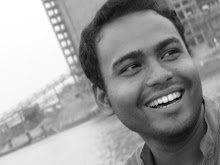
What is a life ? It's kind of good or bad question,bcz
life is a big thing and every parson have own life meaning .When I was kid
I thought life like a playful and beautiful like a butterfly but now life is not like a butterfly.
Life have a many part,some times I fell dispute about life meaning.
I think life is like a sky a big and bigger, sky have many various gaudy color, just like that our life have various colorful part. When we are happy it's look like fresh blue sky.
Most of the human in the earth wanna try to be happy, bcz it is the main part of our life, and we never like sorrow in our life but it's the another most common part in our life. Love is the one of most important and most strong part in our life and we also wanna give love and want love.
Many parson said that life mean running with time, if u running fast your life will goes to better and if u slow you r lost.
Other parson think that life is duty, like working,family responsibility etc.
I think all the parson is right. I wanna share one article bcz I like this article.
Life is worthwhile if u....Article by Jim Rhon,
Life Tip 1)
First, life is worthwhile if u LEARN. What you don't know WILL hurt you. You have to have learning to exist, let alone succeed. Life is worthwhile if you learn from your own experiences, negative and positive. We learn to do it right by first sometimes doing it wrong. We call that a positive negative. We also learn from other people's experiences, both positive and negative. I've always said it is too bad failures don't give seminars. We don't want to pay them so they don't tour around giving seminars. But the information would be very valuable – how someone who had it all, messed it up. Learning from other people's experiences and mistakes.
We learn by what we see - pay attention. By what we hear – be a good listener. Now I do suggest being a selective listener, don't just let anybody dump into your mental factory. We learn from what we read. Learn from every source. Learn from lectures, learn from songs, learn from sermons, learn from conversations with people who care. Keep learning.
Life Tip 2) Life is worthwhile if you TRY. You can't just learn; you now have to try something to see if you can do it. Try to make a difference, try to make some progress, try to learn a new skill, try to learn a new sport. Life is worthwhile if you try. It doesn't mean you can do everything but there are a lot of things you can do, if you just try. Try your best. Give it every effort. Why not go all out?
Life Tip 3) Life is worthwhile if you STAY. You have to stay from spring until harvest. If you have signed up for the day or for the game or for the project - see it through. Sometimes calamity comes and then it is worth wrapping it up. And that's the end, but just don't end in the middle. Maybe on the next project you pass, but on this one, if you signed up, see it through.
Life Tip 4) Life is worthwhile if you CARE. If you care at all you will get some results, if you care enough you can get incredible results. Care enough to make a difference. Care enough to turn somebody around. Care enough to start a new enterprise. Care enough to change it all. Care enough to be the highest producer. Care enough to set some records. Care enough to win.
Four powerful little words:LEARN,TRY, STAY and CARE. What difference can you make in your life today by putting these four words to work?
Four powerful little words:LEARN,TRY, STAY and CARE. What difference can you make in your life today by putting these four words to work?


